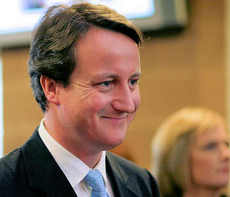 The current consensus issue in British politics is not to discuss the expenses scandal. The so-called ‘New politics’ was a brief footnote in both Brown’s and Clegg’s conference speeches, but public anger remains palpable. Daniel Finkelstein points out that the Tories stand to lose the most from sidelining the issue: continuity undoes their claim that they stand for wholesale change.
The current consensus issue in British politics is not to discuss the expenses scandal. The so-called ‘New politics’ was a brief footnote in both Brown’s and Clegg’s conference speeches, but public anger remains palpable. Daniel Finkelstein points out that the Tories stand to lose the most from sidelining the issue: continuity undoes their claim that they stand for wholesale change.
That is unquestionably true. Whilst the leadership prepare us for the age of austerity, visions of duck houses, moats and servants’ wings pervade the public consciousness, even though those responsible have been disciplined. David Cameron has been at the forefront of the ‘clean-up politics’ debate: Alan Duncan’s sacking, the proposed abolition of MPs’ subsidised beer and sandwiches, the promise of accountability and, above all, Osborne’s candour about economic realities illustrate that the Tories are seeking to alter our politics. But those are beginnings, not ends in themselves. Cameron’s conference speech is a pitch for Downing Street, rooted in the desire to effect radical change; he cannot mimic Brown’s and Clegg’s mere doff-of-the-hat to a scandal and style of politics that symbolise the decline he intends to reverse.

Britain’s best politics newsletters
You get two free articles each week when you sign up to The Spectator’s emails.
Already a subscriber? Log in






Comments
Join the debate for just £1 a month
Be part of the conversation with other Spectator readers by getting your first three months for £3.
UNLOCK ACCESS Just £1 a monthAlready a subscriber? Log in